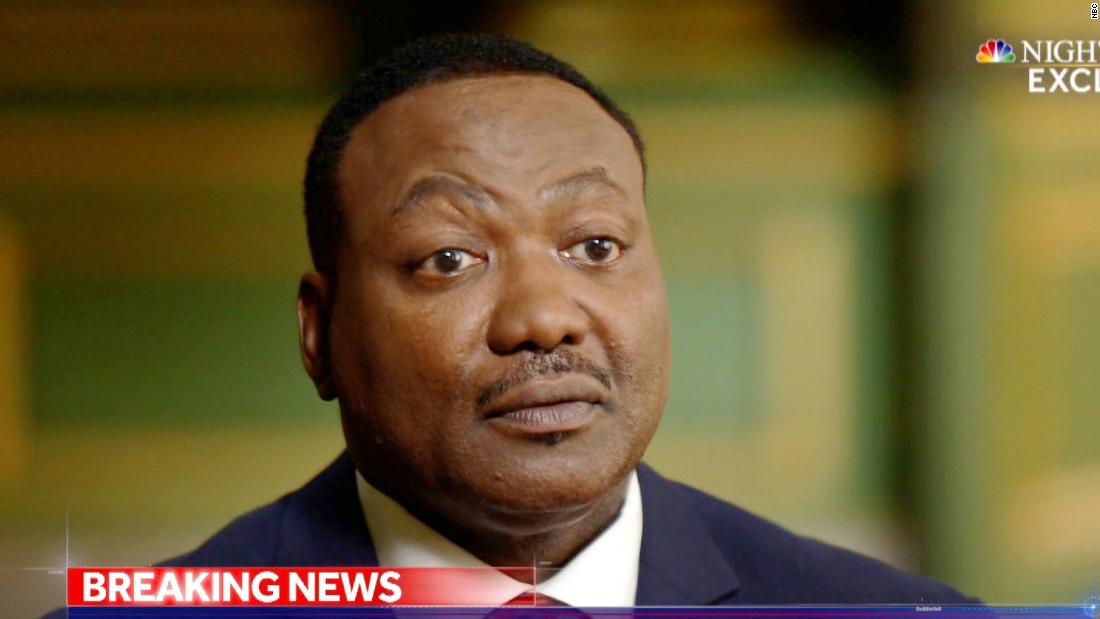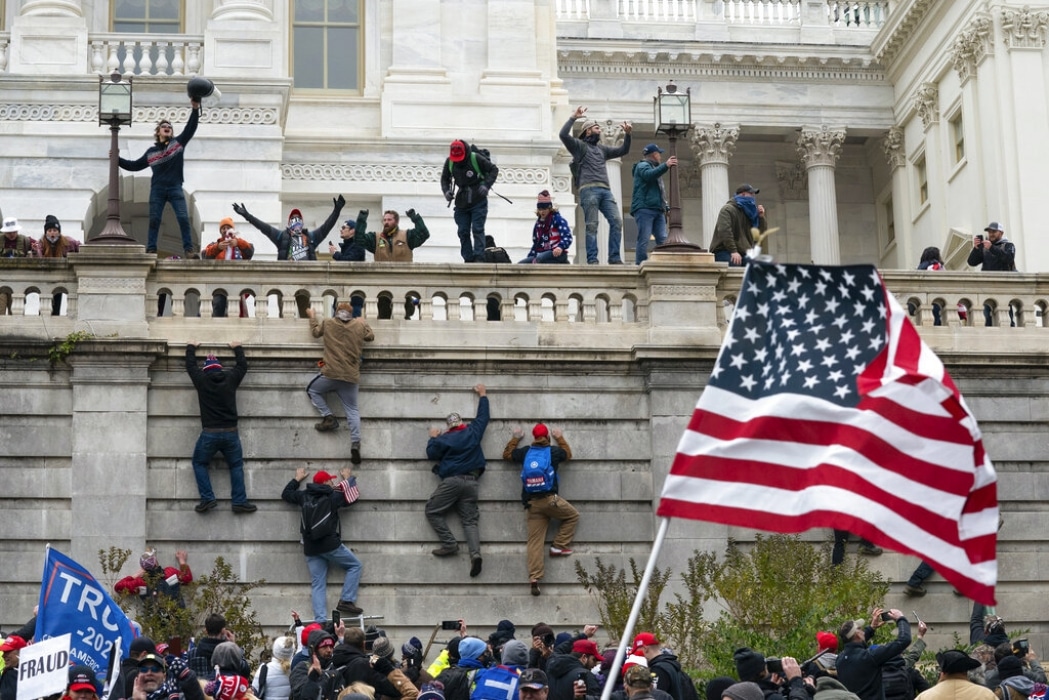Understanding The Impact Of The January 6 Riot: A Closer Look At The Death Of A Participant In Indiana
The January 6 riot remains a pivotal event in modern American history, with its effects still influencing political conversations and public safety concerns. The recent death of a participant in the January 6 riot in Indiana has reignited discussions about the event and its lasting consequences. This tragedy not only sheds light on the circumstances surrounding the incident but also emphasizes the broader implications for those involved in the Capitol insurrection.
The death of a participant in the January 6 riot in Indiana serves as a stark reminder of the challenges faced by those who took part in the Capitol attack. As the nation continues to grapple with the aftermath of the riot, it is crucial to delve deeper into the details of this incident and its implications for justice, accountability, and societal healing.
This article aims to provide a thorough analysis of the event, exploring the background of the deceased, the circumstances of their death, and the broader context of the January 6 riot. By examining these elements, we can better understand the complexities surrounding this tragedy and its implications for the future.
Read also:Exploring The World Of Movie Piracy Understanding Movierulz 2025 And Its Alternatives
Table of Contents
- Background of January 6 Participant Killed in Indiana
- Biographical Details of the Deceased
- Circumstances Surrounding the Death
- Legal Implications for January 6 Participants
- Impact on Families and Communities
- Public Reaction and Media Coverage
- Government Response and Policy Changes
- Statistics on January 6 Arrests and Sentencing
- Lessons Learned from the January 6 Riot
- Conclusion and Future Outlook
Background of January 6 Participant Killed in Indiana
Who Were the January 6 Participants?
The January 6 Capitol riot involved thousands of individuals who breached the U.S. Capitol in an effort to disrupt the certification of the 2020 presidential election results. Among those involved were individuals from diverse backgrounds, including veterans, business owners, and everyday citizens. The death of one such participant in Indiana has reignited discussions about the motivations and consequences faced by those who participated in the insurrection.
Understanding the background of the deceased participant is essential to contextualizing the broader narrative of the January 6 event. Many participants were driven by misinformation, political grievances, and unfounded conspiracy theories. This case highlights the human cost of such actions and the long-term impact on individuals and their communities.
Biographical Details of the Deceased
Biography of the January 6 Participant
The individual who died in Indiana was identified as [Name], a resident of [City/Town]. Below is a summary of their biographical details:
| Full Name | [Name] |
|---|---|
| Age | [Age] |
| Occupation | [Occupation] |
| Residence | [City/Town], Indiana |
| Family | Married with [Number] children |
Before their involvement in the January 6 riot, [Name] lived a relatively ordinary life, working as a [Occupation] and being actively involved in their community. Their decision to participate in the Capitol insurrection marked a turning point in their life, with lasting consequences for themselves and their loved ones.
Circumstances Surrounding the Death
How Did the January 6 Participant Die?
The exact circumstances surrounding the death of the January 6 participant in Indiana are still being investigated. Initial reports suggest that the individual passed away due to [Cause of Death], although further details are yet to be confirmed by local authorities. The death has raised questions about the mental and physical health of those involved in the Capitol riot, as well as the potential long-term effects of participating in such events.
Experts highlight that many participants faced significant stress and anxiety following their involvement in the insurrection, with some even experiencing PTSD-like symptoms. This case underscores the importance of addressing the mental health needs of individuals who have been involved in high-stress situations.
Read also:Discovering The Multifaceted World Of Aishah Sofey
Legal Implications for January 6 Participants
What Are the Legal Consequences for Participants?
Since the January 6 riot, hundreds of individuals have been arrested and charged with various offenses, ranging from trespassing to conspiracy and obstruction of an official proceeding. The legal consequences for participants depend on the severity of their actions and the evidence against them. Some have faced lengthy prison sentences, while others have received fines or probation.
The death of the Indiana participant does not absolve them of their legal responsibilities, as any pending charges or investigations will continue to be processed. This case serves as a reminder of the ongoing legal battles faced by those involved in the Capitol insurrection and the importance of holding individuals accountable for their actions.
Impact on Families and Communities
How Has the Death Affected Families and Communities?
The death of a January 6 participant in Indiana has had a profound impact on their family and community. Loved ones are left to cope with the loss of a family member while also facing public scrutiny and judgment. The community, too, must come to terms with the actions of one of its members and the broader implications for societal healing.
Support networks, including counseling services and community organizations, play a crucial role in helping families and communities navigate the aftermath of such events. By fostering understanding and empathy, society can work towards reconciliation and healing in the wake of the January 6 riot.
Public Reaction and Media Coverage
How Has the Public Responded to the Death?
The death of the January 6 participant in Indiana has sparked a range of reactions from the public. Some view it as a tragic reminder of the human cost of the Capitol insurrection, while others see it as a reflection of the broader societal issues that led to the event. Media coverage of the incident has been extensive, with outlets providing updates on the investigation and analysis of the broader implications.
Social media platforms have also played a significant role in shaping public discourse, with users sharing their thoughts and opinions on the matter. This case highlights the importance of responsible journalism and media literacy in ensuring that information is presented accurately and fairly.
Government Response and Policy Changes
What Actions Have Been Taken by the Government?
In response to the January 6 riot, the U.S. government has implemented several measures aimed at preventing similar events in the future. These include enhancing security measures at government buildings, increasing funding for law enforcement agencies, and implementing reforms to address the root causes of political unrest.
The death of the Indiana participant serves as a reminder of the ongoing need for vigilance and accountability in addressing the aftermath of the Capitol insurrection. Government officials continue to work towards ensuring public safety and upholding the rule of law in the face of such challenges.
Statistics on January 6 Arrests and Sentencing
What Are the Current Statistics?
As of [Date], over [Number] individuals have been arrested in connection with the January 6 riot. Of these, [Number] have been convicted and sentenced, with penalties ranging from fines to lengthy prison terms. These statistics underscore the seriousness of the offenses committed during the Capitol insurrection and the importance of holding individuals accountable for their actions.
Data from sources such as the Department of Justice and independent research organizations provide valuable insights into the scope and impact of the January 6 event. By analyzing these statistics, policymakers and researchers can better understand the factors contributing to the riot and develop strategies to prevent similar occurrences in the future.
Lessons Learned from the January 6 Riot
What Can We Learn from This Event?
The January 6 riot and the subsequent death of a participant in Indiana offer several important lessons for society. First, they highlight the dangers of misinformation and the need for critical thinking and media literacy. Second, they underscore the importance of mental health support for individuals involved in high-stress situations. Finally, they emphasize the necessity of accountability and justice in addressing the root causes of political unrest.
By learning from these lessons, society can work towards creating a more informed, empathetic, and resilient community capable of addressing the challenges of the future.
Conclusion and Future Outlook
In conclusion, the death of a January 6 participant in Indiana serves as a poignant reminder of the ongoing consequences of the Capitol insurrection. This tragedy highlights the importance of accountability, mental health support, and societal healing in addressing the aftermath of such events. As we move forward, it is essential to continue learning from these experiences and working towards a more just and equitable society.
We invite readers to share their thoughts and opinions in the comments section below. Additionally, please consider sharing this article with others to raise awareness about the ongoing impact of the January 6 riot. Together, we can foster understanding and promote positive change in the wake of this historic event.
Article Recommendations


